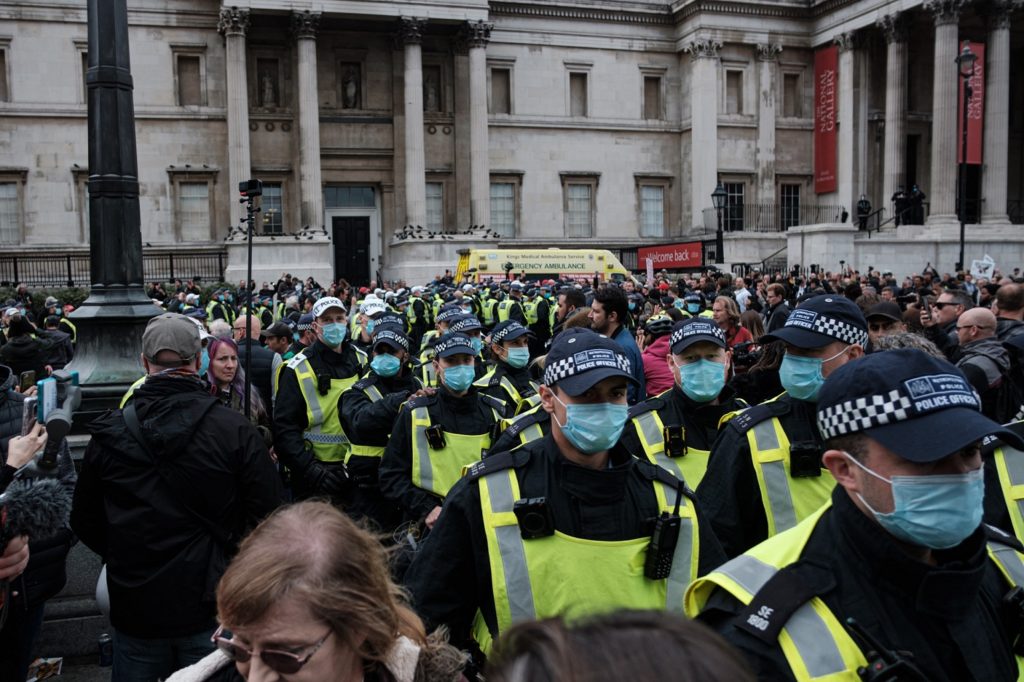Covid Anniversary Blog

The UK Government used the emergency powers through the Health Protection (Coronavirus, Restrictions) (England) Regulations 2020 to bring in the Coronavirus Act 2020. Similar trends were witnessed worldwide. The legislation has allowed police to restrict movement, prohibit events, detain people, enforce lockdowns and quarantine restrictions.
In the UK, more than 68,000 fixed penalty notices (FPNs) for contraventions of the above have been issued for activity include illegal raves, parties and protests, businesses not enforcing face-covering regulations, or not adhering to the table service only rules.
Such restrictions on all aspects of our lives have had a huge impact on individual right to liberty and freedom of movement. However, there are serious questions how far the governments can go before it reaches the outer limit of the law.
Some have sought to protest this curtailment of liberty. For example, in Oakenshaw, near Bradford in England, one hair salon owner, Sinead Quinn, regularly defied the anti-lockdown rules and kept opening her salon, pasting a copy of the Magna Carta on her saloon door in defence of her decision to keep trading. She is facing Court appearances over unpaid fines amounting to £17,000.
Civil liberty and human rights have also seen an assault due to the increasing use of ‘surveillance technology’. Drones have been traditionally associated with police to catch or chase criminals and law breakers. The COVID-19 pandemic prompted an entirely new role for drones to enforce lockdowns, manage crowds or even disinfect public spaces.
Countries such as South Korea have been applauded for the use of drone technology to contain infection in crowded public places. But the issue raises serious concerns around privacy and consent. Drones can be linked to a CCTV network that are equipped with facial recognition technology which can be used to identify individuals and shared with the government by drone manufacturers.
The use of such drones has already been challenged in courts in France and the United States on the grounds that such use can be prejudicial to human and legal rights. A serious debate is needed to objectively assess any cost-benefit of using such technologies including a robust review of any attendant ethical issues.
The right to peaceful protest was severely tested recently a peaceful vigil organised in Clapham Common in South London on March 13th for Sarah Everard, who was abducted and murdered by a serving police officer, which turned into violence. It is suggested that the change of tactics by the police to enforce lockdown rules and social distancing measures contributed to the chaotic scenes.
The Police, Crime, Courts and Sentencing Bill introduced in Parliament has already undergone its Second Reading in March 2021. It has been described as a “trojan horse” on account of controversial plans to give further discretion and powers to the police to intervene and shut down protests.
The right to peaceful and lawful protest is an essential feature of any democracy and needs to be protected at all costs. Right now, our civil liberties are ‘on loan’. Eventually we would like them back!
Paresh Wankhade is Professor of Leadership and Management, and Director of Research in the Business School at Edge Hill University. This piece is written as a follow-up to a post originally published in the COVID-19 blog on 28th April 2020 by Paresh which can be found here.
Photo by Ehimetalor Akhere Unuabona on Unsplash
